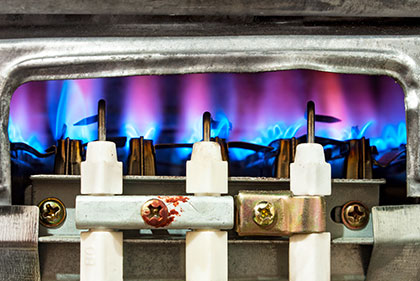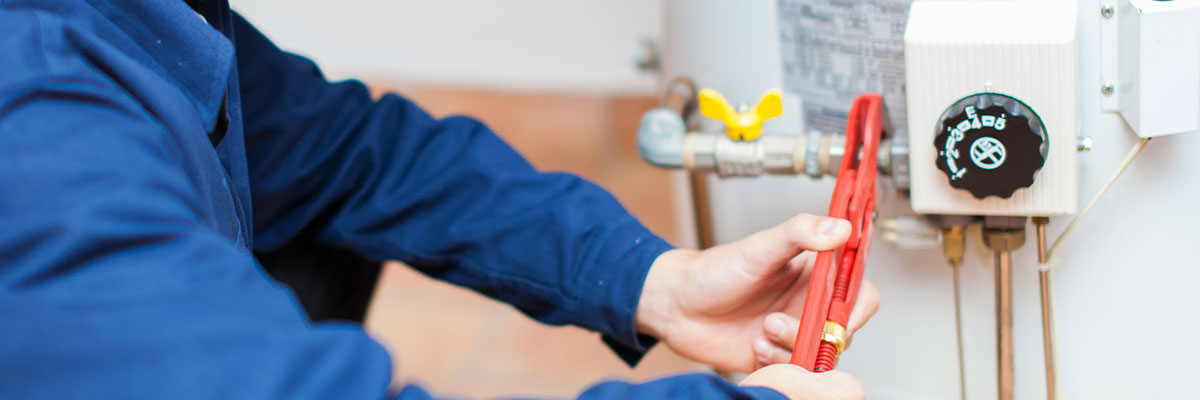
Picture it. You go to take a shower after a long day at work, and you turn on the tap, ready for that celebratory hot shower before bed. You wait and wait, and before you know it, all you’re left with is a stream of cold water. Talk about a let-down.
For homeowners living in Tampa, Florida, environmental factors such as humidity and corrosion can wreak havoc on the appliances in your home. But there’s hope – you can prevent costly water heater problems just as you would with any in-home appliance, by gaining knowledge and performing maintenance to prevent small problems from turning into full-blown issues.
Water heaters will experience problems from time to time, just like anything else. By learning to spot the issues and perform your own water heater repair, you’re empowering yourself to take control, and best of all, learning how and when to work with a professional Tampa plumbing company.
Here’s a list of the top three common water heater problems and things you can do right now to fix them. While your water heater problem may not be covered here, you would do well to check these areas first before you enlist the help of a professional.
1. Hot Water Supply Problems
Frequently, a lack of hot water or when water is too hot is the first sign that it’s time to consider water heater repair.
No Hot Water

Gas Water Heaters
Look at your water heater’s pilot light. This is a small gas-fed flame at the bottom of the water heater or behind a small door in the unit. Be sure to read and obey all safety notices. If the pilot light is not lit, read the instructions on the unit to relight the system. On modern water heaters, there will be an apparatus to relight the pilot light. Do not strike a match when there’s a very strong smell of gas.
Electric Water Heaters
Verify there’s power going to your water heater by examining the circuit breaker. Have any of the circuit breakers been tripped? If so, you’ll notice a switch in a position different from the others. Sometimes resetting the circuit breaker is enough to fix an electric water heater.
Water is Too Hot
Gas Water Heaters
A gas water heater will feature a single thermostat which enables you to customize the temperature of the water in the tank. Depending on the unit’s placement in the home, accidental changes can be made when the dial is brushed past. The optimum setting is noted on each dial, and a small adjustment can yield noticeable results. Keep the area around the water heater clear and free from flammable items and remember that if you’re changing the temperature on the dial, a little goes a long way.
Electric Water Heaters
An electric water heater typically features two thermostats – one to control the lower end of the water temperature and one that controls the upper range of the water temperature. If either thermostat has been tripped, the temperature of the water coming out of the tap will be affected. Before you examine an electric water heater, be sure to turn off the power from the circuit breaker prior to removing any protective covers.
2. Discolored Water
If the water coming out of the tap appears to be discolored, this is another common water heater problem. While not all water quality problems are caused by a malfunctioning water heater, this is a good first place to check.
Sediment or Buildup

In Florida, hard water is a fact of life. In fact, many areas in the southern United States have hard water that can cause everything from build and scale to sediment. If you suspect your water heater has a problem with sediment or buildup, consider flushing the tank. Look for a spigot like the one you use in your garden to water the plants. Attach a water hose and allow the water to drain out. Of course, read the instructions printed on your unit prior to flushing the system.
Sacrificial Anode
Older water heaters and those being used in areas where water hardness is extreme, the component used to keep buildup to a minimum may be fully corroded. Called the sacrificial anode, a metal rod is affixed to the inside of the tank where your heated water is stored. Tiny particles will react with this metal rod and stick to it instead of settling at the bottom of the tank. Over time the sacrificial anode will either need to be replaced or water heater replacement may be needed.
3. Strange Noises
Are you perturbed by things that go pop in the night? Rest assured that many times, these noises are coming from a water heater in need of maintenance. As a water heater ages, strange noises may begin to happen during normal operation, and this is a sign that a problem may be developing.
Popping Sounds
If your water heater is making popping noises, this means the water that is boiling in the tank is doing so underneath a layer of sediment. If this is the case, you may need to flush the tank to remove excess sediment.
Sizzling Noises
Is your water heater making a sizzling noise? This could mean there’s a leak in the water heater. Check for pools of water underneath the unit as you may have a leak on your hands. Also, check to see that all connections are in good condition before considering any other sources for leaks.
Should I Repair or Replace My Water Heater?

Based on the level of minerals in your water and how much water you use, your water heater will typically last 10-20 years. Modern units are much more energy-efficient, so consider what you’ll save on utility costs when deciding whether to repair or replace.
Professional water heater repair is less expensive than water heater replacement and could save you money in the long run. Some jobs require specialized tools, and you need the skills of an experienced professional to safely and accurately address the issues.
If you don’t have experience with electrical work and plumbing, it’s better to leave this work to your qualified Tampa plumbers and electricians. Furthermore, any repair work needed for gas heaters should be left to an experienced technician to avoid the risk of gas leaks, fire, or injury.
Fix Your Water Heater Today!
Just like any other appliance in your home, common water heater problems will crop up from time to time. There are two categories of water heater repair – those you can do yourself and those which must be completed by a professional. Disclaimer: Easy AC recommends contacting a licensed plumber to repair your water heater and does not recommend repairing your water heater on your own.
Preventative maintenance and a little know-how can go a long way toward saving you time and grief when common water heater problems strike. Does your water heater problem not fall under one of the three common problems or would you simply like some assistance? It may be time to trust a professional like Easy A/C to troubleshoot your water heater in the Tampa Bay area.
Whatever issues you’re currently dealing with, don’t wait! Give one of our customer representatives a call today. With prompt and effective assistance, you can get back to your normal routines – including hot water – and keep everyone in the household happy.
Contact us today by simply filling out the online form or give us a call at 813-COLD-AIR (265-3247).
*Disclaimer:
The materials contained in this article are provided for general information purposes only and do not constitute legal or other professional advice on any subject matter. Easy A/C does not accept any responsibility for any loss which may arise from reliance on information contained in this article.

